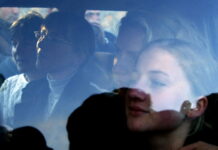Refugees in Turkey’s northwestern city of Bolu said they have been confronted with more hate crimes since the municipal council approved a discriminatory proposal imposing exorbitant fees on foreigners to access public services in the city.
Speaking to Deutsche Welle Turkish service (DW), refugees said they had to withdraw their children from school due to bullying and had to leave their jobs because of workplace mobbing.
According to the city council’s decision, foreigners will be required to pay a fee of TL 100,000 (close to $8,000) for a marriage license, while it normally ranges between TL 500 ($40) and TL 1,500 ($120). Additionally, foreigners will be made to pay a $2.50 tax per 1 cubic meter of water, while Turkish citizens pay more than 10 times less.
Mayor Tanju Özcan of Turkey’s main opposition Republican People’s Party (CHP) said the proposal would be put into effect as of January. 1, 2022.
One Afghan refugee, identified as Zeynep, said she barely left her home because she was confronted with hostile actions outside. “Random people on the street stop me and demand to know where I am from and why I came,” she said. “My son had to change schools because he was always bullied.”
The two children of a family from Iraq were severely beaten. One of the children suffered internal bleeding as a result, but the family was too afraid to file a complaint against the perpetrators.
Another Iraqi refugee, Ahmet, said the city refused to issue him a permit to open a bakery. “They just said the decision was final,” he said, and added that he believed it was because he was a foreigner.
Many refugees said they were unable to find homes because nobody wanted to rent to “Arabs.” “They say foreigners will make bad use of their houses and refuse to rent to us. Such sentiments have been expressed more frequently since the council’s decision and the mayor’s anti-migrant statements,” said refugee student.
Ali from Afghanistan said at a meeting with Bolu Governor Ahmet Ümit refugees were advised not to cook food that had potent aromas, not to invite too many guests to their homes and not to leave their homes after 9 p.m. Ali added that the governor had not warned them but given advice regarding the social tensions.
Seher from Afghanistan said refugees had no support system and were put in a very vulnerable position. “We can’t speak Arabic or Farsi on the streets and sometimes can’t leave our homes,” she said. “Sometimes people tell us we ruined our countries and are now ruining Turkey. They applaud the mayor for these new regulations.”
Refugees in Turkey have been increasingly targeted by hate speech and hate crimes and are blamed for many of Turkey’s social and economic troubles.
Turkish media including pro-government and opposition outlets fuel and exploit the flames of hatred against people who fled their countries and sought refuge in Turkey.
Anti-migrant sentiment has also been expressed by opposition politicians. CHP leader Kemal Kılıçdaroğlu has promised to send Syrians back home if his party comes to power.
In August a group of locals attacked Syrian refugees, their houses, workplaces and cars in Ankara’s Altındağ district, chanting anti-Syrian and fascist slogans. Images on social media showed dozens of angry people throwing rocks at homes, smashing shops and cars and burning merchandise looted from shops believed to belong to Syrian refugees.
According to the latest figures provided by Interior Minister Süleyman Soylu on November 22, Turkey is home to a total of 4,038,857 refugees from around the world. Speaking to parliament’s Planning and Budget Committee, Soylu said 3,731,028 of these were Syrian refugees who are residing in Turkey under temporary protection status. The number of refugees with international protection status is 307,829.















